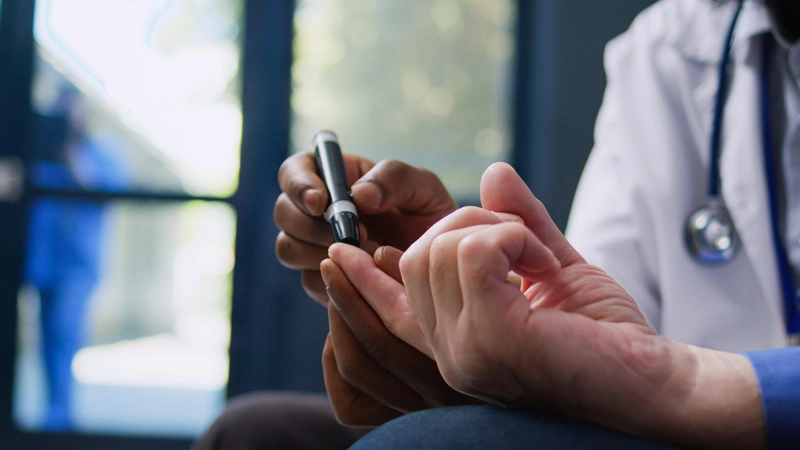- Published on: Apr 12, 2022
- 3 minute read
- By: Second Medic Expert
What Are Condoms?
What Are Condoms?
A condom is a sheath-shaped barrier device, usually made of latex, that is worn on the penis during sexual intercourse to reduce the risk of transmitting sexually transmitted infections (STIs) and pregnancy. The condom is also referred to as rubber. A condom is used to reduce the likelihood of pregnancy or transmission of sexually transmitted infections (STIs). Condoms are made from latex, polyurethane, or lamb intestine. Condoms are a barrier contraceptive that is worn on an erect penis during sexual intercourse. They are made of latex, polyurethane, or sheepskin and help to prevent pregnancy as well as the spread of sexually transmitted infections (STIs). For latex condoms to be effective against STIs, they must be used correctly and consistently.
A condom is a sheath-shaped barrier device, usually made from latex, that is used during sexual intercourse to reduce the probability of pregnancy or sexually transmitted infections (STIs). The device covers the penis and helps to prevent semen and other body fluids from entering the body of a sexual partner. Most condoms are also treated with a spermicide which helps to kill sperm and further reduce the risk of pregnancy. Condoms are a sheath-like barrier device that is used during sexual intercourse to reduce the probability of pregnancy and the spread of sexually transmitted infections (STIs). They are typically made from latex, but some are made from polyurethane or lamb intestine.
A condom is made of latex, polyurethane, or lambskin and helps to prevent pregnancy and the spread of sexually transmitted infections (STIs). A condom is a sheath-like barrier worn by men during sexual intercourse. It is designed to prevent sperm from entering the woman's body. Condoms also help to protect against sexually transmitted diseases (STDs). condoms are made of latex, polyurethane, or sheep intestine.
Condoms are a type of contraception that helps to prevent pregnancy. They are also effective in reducing the risk of sexually transmitted infections (STIs). Condoms are made of latex, plastic, or sheep intestine and they fit over the penis to prevent sperm from entering the woman's body. There are a variety of condoms available on the market, and they come in different shapes, sizes, and colors. Most condoms are made of latex, but there are also polyurethane condoms available for people with latex allergies. Condoms can also be flavored or scented.
Before you use a condom, it is important to read the package instructions carefully to make sure you are using it correctly. It is also important to check the expiration date on the condom. A condom should not be used if it is past the expiration date or if it is damaged. When using a condom, you should always consult with your doctor about getting them prescribed at home!
They are typically rolled onto an erect penis before sex and must be removed and disposed of promptly after ejaculation. Latex condoms provide the best protection against most STIs, including HIV. Polyurethane condoms may be preferred by people who are allergic to latex. Lamb intestine condoms are less common and more expensive than other types of condoms. A condom is a thin sheath worn by a man during sexual intercourse. It is designed to prevent the sperm from entering the woman's body and causing a pregnancy. A condom can also protect against sexually transmitted diseases (STDs).
Condoms are made of latex, polyurethane, or sheep intestine. They come in different sizes and colors. The most common type of condom is the latex condom. Latex condoms are effective in preventing pregnancy and protecting against most STDs. Polyurethane condoms are also effective in preventing pregnancy and protecting against most STDs. Sheep intestine condoms provide less protection against STDs than other types of condoms. A condom is a thin sheath made of latex or polyurethane that is worn by a man during sex. It helps protect from sexually transmitted infections (STIs) and pregnancy. Condoms can also help reduce the risk of other sexually transmitted diseases, such as HPV.
Condoms should be used with every sexual encounter, and they should be changed every time you have sex. They should also be stored in a cool, dry place. If you are using condoms for the first time, it is important to consult your doctor or health care provider to make sure you are using them correctly. A condom is a sheath-shaped barrier device that is used during sexual intercourse to reduce the probability of pregnancy or sexually transmitted infections (STIs). Condoms are typically made from latex but can also be made from polyurethane or lamb intestine.
They are applied to the penis before intercourse and physically block ejaculated semen from entering the body of a sexual partner. Condoms are also helpful in preventing the spread of many STIs because they cover more surface area than do other forms of contraception. For example, when used correctly, condoms can help reduce the risk of contracting HIV by up to 90%. A condom is a sheath made of latex or polyurethane that covers an erected penis. It is also known as a "rubber" in some parts of the world. It is used to prevent pregnancy and the transmission of sexually transmitted infections, including HIV/AIDS. Condoms should be used together with other forms of contraception for maximum protection. They can be bought from pharmacies without a prescription, but it is best to consult a doctor first to find out whether they are the right contraceptive method for you.










